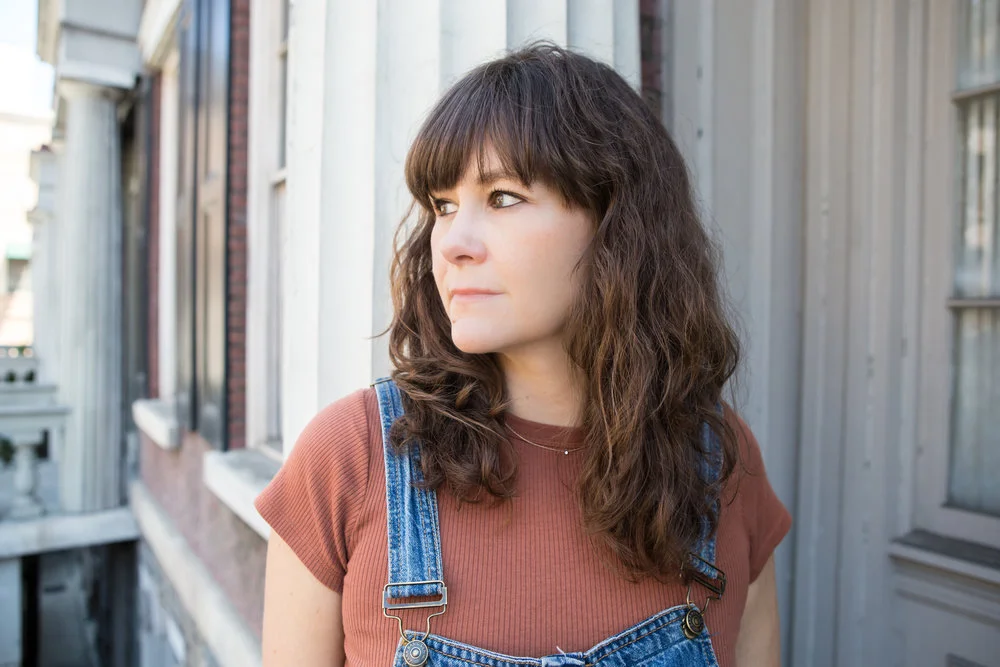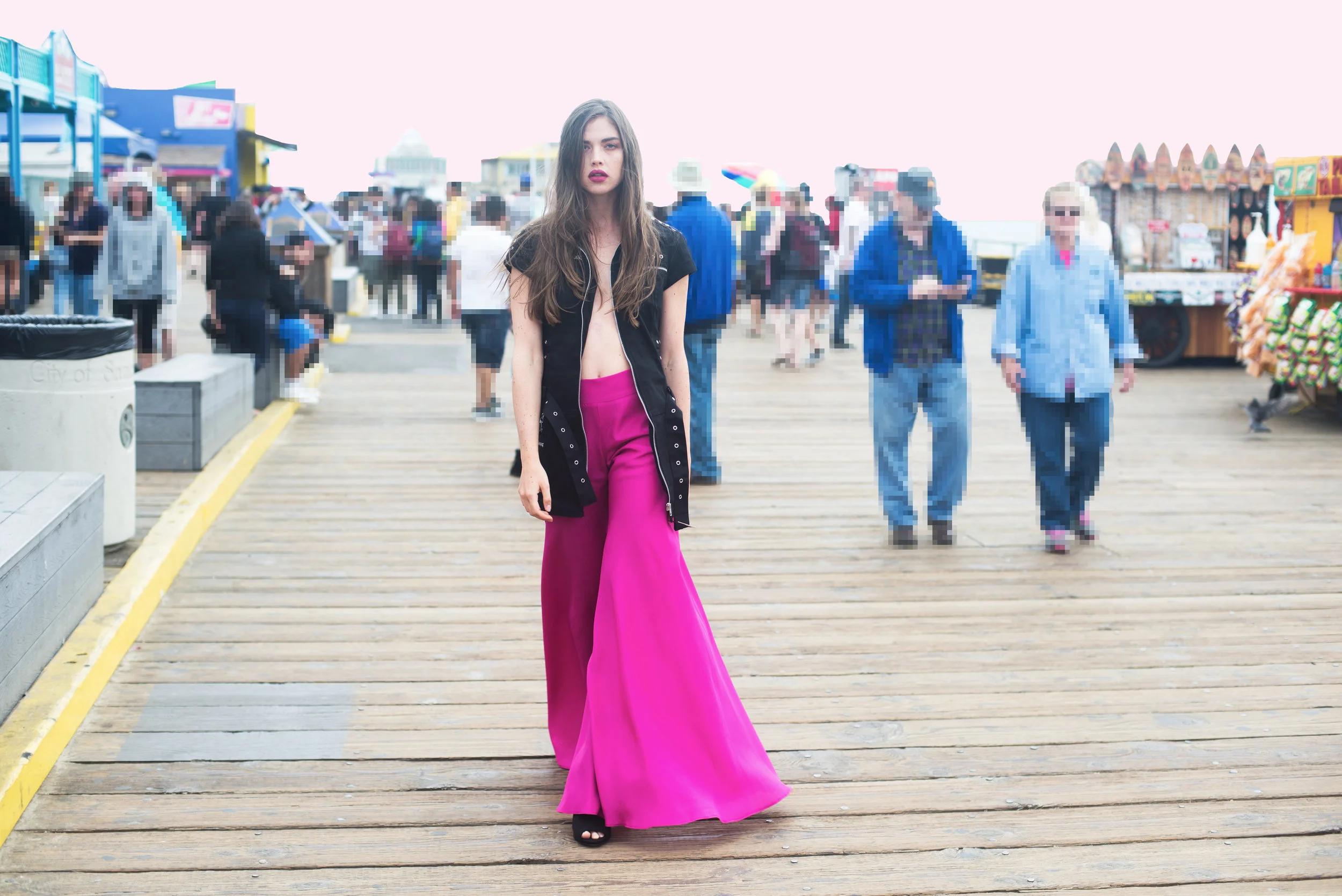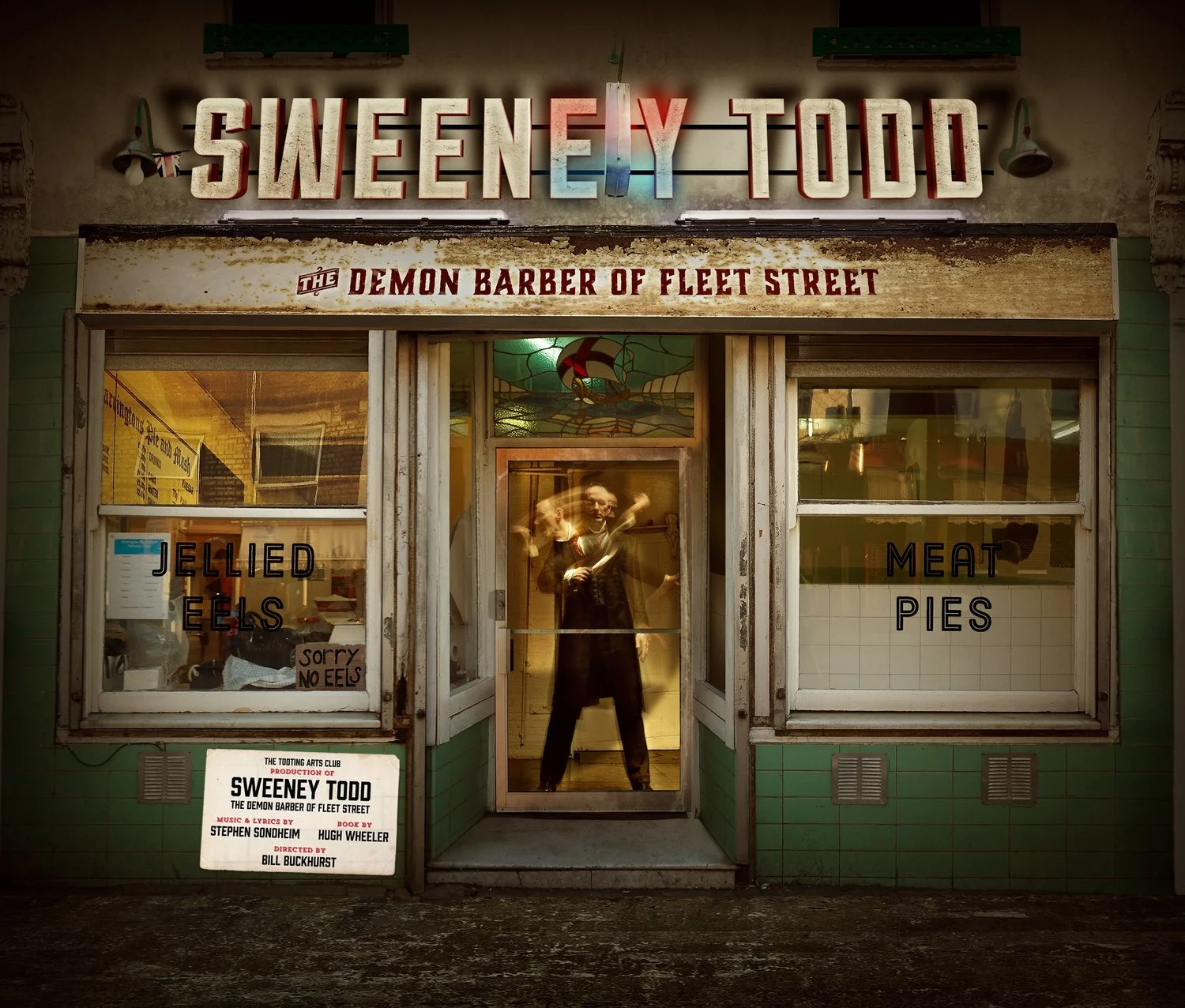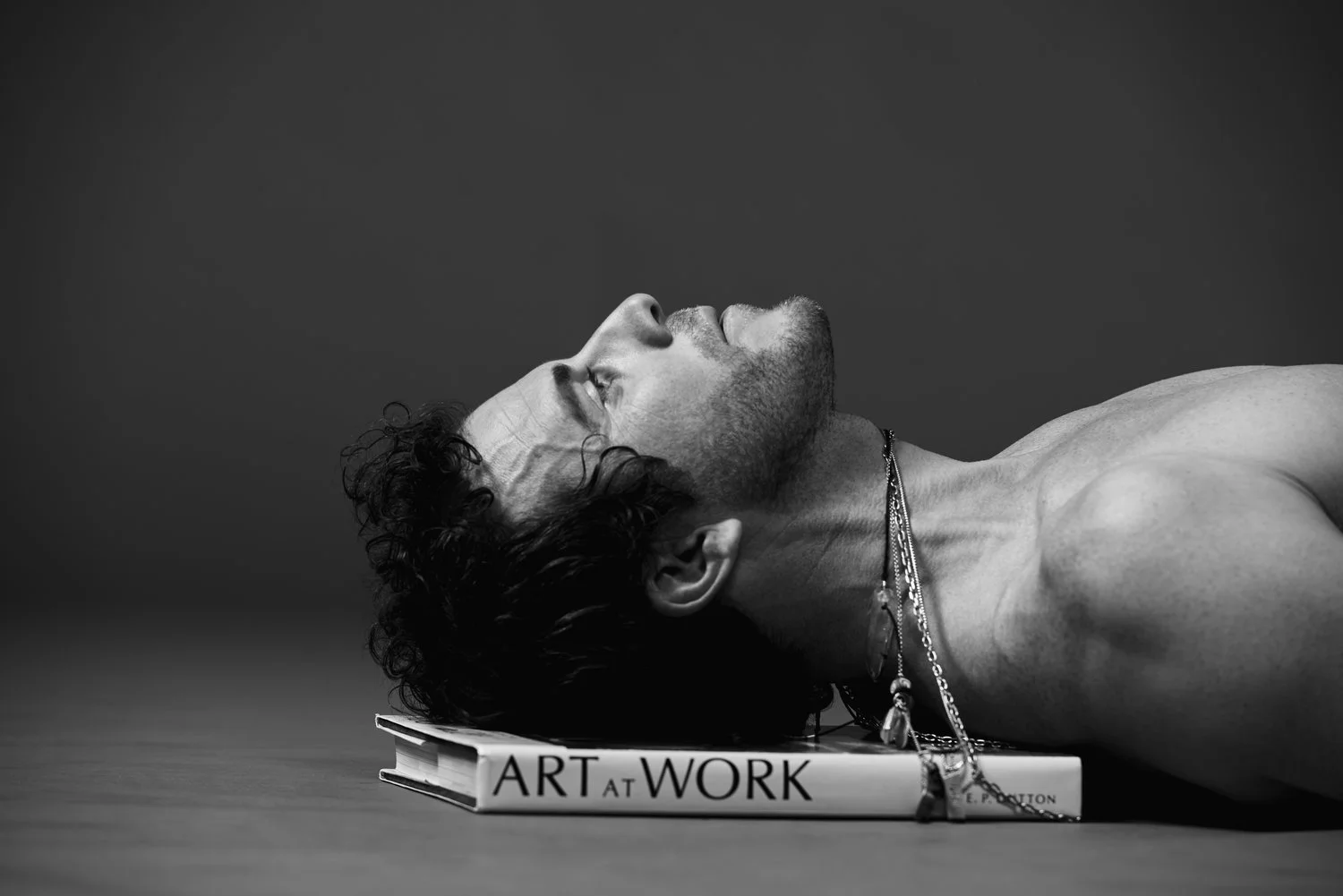Writer Profile: Bekah Brunstetter
Photo by Katie McGehee
Five years ago at Masterpiece Cakeshop in Colorado, Jack Phillips refused to make a cake for Charlie Craig and his fiancé David Mullins, citing the First Amendment’s guarantees of free speech and free religious exercise as proof he should not be required to sell cakes that “violate his conscience.” The story quickly went viral, igniting a national debate over the rights of religious individuals versus gay rights and laying the groundwork for Bekah Brunstetter’s profoundly intimate new play, The Cake.
Brunstetter may not be a household name (yet!), but odds are good you’ve watched much of her most recent work from the comfort of your own home. She is the writer and producer on both NBC’s wildly popular new show This is Us and the first season of STARZ’s breakout series American Gods. Her roots as an artist, however, are and have always been in the theatre.
Rogue had the pleasure of attending a performance of The Cake and we couldn’t help but notice the intense humanity Brunstetter’s writing brought to this often uncomfortable topic - one that is still so relevant in today’s political climate. The play begs the question: what if these human rights conflicts weren’t happening to strangers on the nightly news, but to the people we love, right here in our own backyard? Would religious beliefs trump lifelong friendships or would these closely-knit relationships inspire a change of heart? This dilemma is at the center of her extraordinary play that left us, admittedly, wondering what we might do if we found ourselves in a similar situation. Hint: the answer isn’t as black and white as you might think, and that’s exactly the point.
Brunstetter recently took some time out of her hectic schedule to speak with Rogue about living the Hollywood "dream" and why the theatre community in Los Angeles has rekindled her love for playwriting.
Photo by Katie McGehee
ROGUE: The Cake was such an incredibly emotional ride for us given the current political climate. How much did the most recent election influence the direction of the play? Were any significant changes made to the script after November?
Bekah: I started writing the play in the fall of 2015, when Trump was not even really a thing. Honestly, with the very first draft, I was asking myself, is this still relevant? Do people still care about the same sex marriage debate? Or are we past that? But then as Trump gained popularity, the divide in this country between liberals and conservatives became more apparent than ever, and subsequently, the play became even more relevant. From the moment I typed THE CAKE into a blank word document (which, PS, is my favorite part of playwriting, writing the title page!) I set out to humanize conservative values, and that has stayed the same, through the election and its aftermath. I think my need to get it out into the world definitely became stronger post election, though.
For the uninitiated, tell us what audiences can expect from The Cake? What message do you hope they walk away with?
First and foremost, you will most likely leave the play with a violent need to eat cake, so just be prepared for that. Secondly, my hope is that an audience leaves with a new perspective on this vast divide in our country right now, and with a reminder that we’re all human beings: longing, terrified, and in dire need of cake.
Why cake? We recognized, while watching the show, how special and structured the art of baking is and how it informs the lead character, Della’s, life and relationships. Can you speak on this a little more? What does cake mean to you within the context of the play?
Personally I love to make and eat cake. It’s one of the few things I do to relieve stress. I love how both the making and and eating of cake brings people together. I love how during a busy, stressful work day, when someone’s birthday cake gets brought out – work pauses, and for ten or twenty minutes, everyone stands around together, eating cake. Within the play, the cake is a link between human beings with opposing values. It’s the universal thing between them.
What about this play speaks to your own personal experiences and upbringing, both in the South and NYC?
Debra Jo Rupp in The Cake
I grew up in North Carolina, in a very lovely, church-going family. I came of age in that community, but then circa high school, started to ask questions about what I was learning at church. Around the same time, I started doing theater, and started to have gay friends, like you do in theater. This was the beginning of a fracture in myself, in my spirituality, that I’m still wrestling with today, to be honest. I didn’t understand how these friends I loved could be so quote unquote wrong. As the me-character, Jen, expresses in the play, in my liberal world (NYC, then LA) I feel torn in half all the time. Of two minds. I always feel like a bit of an odd man out when it comes to politics, as I always can’t help but see the other side of things.
Congratulations on your show's recent Emmy wins!! What’s it like being on the TV side of things? What are some of the challenges of writing and producing?
Why, thank you! Every job is different, but This is Us has been particularly fantastic. Every single person who works on the show is truly a warm, humble, giving person, and you feel that from the writer’s room to set. As a “writer-producer,” I’m basically just breaking episodes, writing, and spending some time on set. It’s tough sometimes to juggle it all, but I feel really lucky to get to help make something so special, while ALSO paying my rent. When people ask me how I’m doing, I think nine times out of ten I wryly reply, Oh you know, living the dream, but really, actually, I am in fact LIVING THE DREAM.
Tell us about the process of creating a play versus a television show. What are the differences? What are the similarities, if any?
Photo by Darrett Sanders
With a play, you start on your own, which is lonely, but kind of beautiful and nice. You’re just in your own head, sorting through all of the own muck in there, and formulating it into a story that is usually deeply personal, a bit embarrassing, and definitely shapeless. I love this solitary part of playwriting. But then at some point, you share it with actors and a director, and they help you define it, shape it into something. It’s solitary, and then collaborative. I rely heavily on actors to help me understand what I wrote, so I love this part, too. With TV, it’s collaborative from the get go. You’re with a bunch of other writers, together in a room, discussing every detail of an episode, both large and small. I love how you never feel alone in TV writing. If you’re having not your greatest brain day, one of your co-workers is ON. So the boat always floats. Both processes are writing. Trying to create truthful stories about humans that hopefully other humans will want to watch.
In your experience, how is theatre different here in Los Angeles versus NYC? What is your hope for the future of theatre in LA?
I spent about nine years in NYC doing theater, and I wouldn’t trade a second of it for anything. It was amazing. Nine years I ran around like an idiot, raising money at bars with friends to put up weird little one acts, ducking down into tiny bars with even tinier stages to see musicals, waiting in line for rush tickets, making sure to catch every single thing at Playwright’s Horizons and Clubbed Thumb and New Georges and Second Stage and talking about it after with friends, discussing the plays merits and shortcomings. I loved every. Second. There is just SO MUCH THERE. It never stops. But after a while…that can get exhausting. I remember distinctly feeling like I was always missing something, like I always letting someone down because I missed their show.
I started TV work in LA around the time I was 30, which is sort of around the time that you start wishing you had things like closets and yards. I never chose to move to LA, really, it just kind of happened, but I’m so glad it did, because there is actually so much wonderful theater here. Rogue Machine, Iama, the Echo, Open Fist, Circle X, so much. There are so many playwrights out here writing for TV now, and some awesome companies who are here to stage their work. So the difference to me is that in LA, there is LESS of it –but I kind of love that, because it makes it less overwhelming. And honestly, the theater scene here is slightly less obsessed with itself. Working on plays here has reminded me why I love making plays, and has stripped away some of the BS, some of the worry about ‘which fancy theater or person will love this play?’ A lot of thathas fallen away.
Do you feel a responsibility, as a successful woman in Hollywood, to offer more opportunities for women - both as a writer and a producer?
Hell yes! Hence my involvement with the Kilroys (www.kilroys.org) Each year, we put out a list of unproduced plays by women and trans writers. We’ve got four lists now. Check ‘em out!
Photo by Darrett Sanders
Women playwrights often experience harsh criticism in the male dominated theatrecriticism world - I’d use the shortened runs of Paula Vogel and Lynn Nottage's Tony nominated plays as an example, after being snubbed by Ben Brantley in the Times. What has your experience been, as a female playwright, of the lack of gender parity in theater criticism and what can women writers do to combat it, if anything?
(See Kilroys info above)
The Cake received an extended run here in LA over the summer, it’s already being produced at four other theaters across the country, your show This Is Us was just nominated for and won a plethora of Emmys… Do you feel like you still have to prove yourself to the industry?
Oh, yes. Betty Gilpin just wrote this amazing essay for glamour about how, even with all of her success (American Gods, Glow) it still feels fragile and not real. Please just insert everything she said into my mouth. I know how hard I work, and I know I believe in my work (most of the time) but it still feels ….fragile. If I’m sitting watching my play, and the entire audience is having a great time, but ONE DUDE is clearly hating it – I focus on that ONE DUDE. No one else’s enjoyment of the play even matters. I focus on the approval I don’t have. But honestly, I think this sort of insecurity just comes from being a writer, or a creative person in general. I think insecurities and our (quiet) competitive natures drive us. If we thought we were great, we would rest back on our laurels, sit by the pool. Being slightly uncomfortable is incredibly motivating.
Debra Jo Rupp in The Cake
A writer friend and I were talking the other day about the differences between shows that are “about women” versus shows with truly female-driven narratives. What’s the difference, in your opinion?
A very interesting question. I think that a show that is ‘about a woman’ simply inserts a woman into it, i.e., the character was a guy, but instead let’s make it a brassy lady and call it a woman show! Assigning male characteristics to a woman and telling the exact same story. I feel like that was happening a lot like five years ago, but less so now. For me, female driven narratives tend to be more focused on character moments, less of a fast drive towards a finish. More contemplative. For me shows like Orange is the New Black and Glow are not just about women, but also have female driven narratives – they give each character a moment, and they delight in specificity. Personally, I love it when a show is created by a woman but you really wouldn’t know it. Like Showtime’s The Affair, created by Sarah Treem. It’s very sexy and very smart and very lean and there’s nothing ‘feminine’ about it. The fact that Maura Tierny’s character is rich and fascinating is just a detail. I wish we could stop talking about shows written by women and shows written by men and geared towards women and geared towards men and let them just BE SHOWS.
What advice would you offer to other writers out there looking to get their start in theatre, film and television writing?
This is has been my go-to for years, and I still stand by it: you have to trick yourself into believing that you’re the only writer in the world. By which I mean, you have to tune out the rest of them. Once you start comparing your own voice and your own success to that of others, that’s when you start to doubt yourself, and you can’t write from a place of doubt. Surround yourself with people who think your work is amazing, and stay in that safe place, until you’ve written something that feels personal, specific, and real. Once you’ve got that work, GET IT OUT INTO THE WORLD WITH ABANDON. Submit to every contest / prize / festival you can find online. Lastly, those people who think you’re amazing? Call them. Invite them over. Make things with them. Nurture those friendships.
Photo by Katie McGehee
Following sold out runs at The Echo Theatre here in LA and The Playmakers Repertory Company in Chapel Hill, NC, The Cake is scheduled to open at The Warehouse Theatre in Greenville, SC in Dec. 2017, The La Jolla Playhouse in Feb. 2018, and Houston’s Alley Theater in June, 2018.
Written by Katie McGehee






